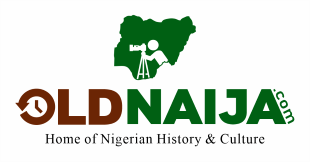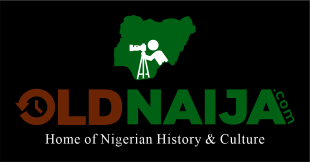The National Congress of British West Africa (NCBWA)
The National Congress of British West Africa (NCBWA) was founded in Accra, Gold Coast (now Ghana) in 1920 by the educated elites from English-speaking West African colonies led by Joseph Casely Ephraim Hayford, a Ghanaian and Dr. Akinwande Savage from Nigeria. Other co-founders and early officials included Edward Francis Small, F. V. Nanka-Bruce, A. B. Quartey-Papafio, Henry van Hien, A. Sawyerr, Chief Oluwa and Kobina Sekyi.
The NCBWA’s first meeting was held at the Rogers (African) Club in Accra from 11th to 29th of March, 1920. It was attended by fifty-two delegates: forty-two from Gold Coast (Ghana), six from Nigeria, three from Sierra Leone and one delegate from The Gambia.
In 1921, the NCBWA sent a delegation to London to present a petition stating its demands to Lord Milner, the then Secretary of State for Foreign Affairs. The delegation, led by Chief Oluwa, included Mr. Herbert Macaulay, Mr. Egerton Shyngle, Dr. Akinwande Savage and Mr. Casely Haford, the president of the congress.
However, the journey to London was an exercise in futility. The members of the congress were accused of self-centeredness and were also said to have represented no one but the educated and elite class of their colonies. The colonial office also argued that West Africans were not yet ripe for representative institutions and it would amount to foolhardiness allowing them this.
Demands of The National Congress of British West Africa (NCBWA)
- One major demand of the NCBWA was granting elective principle in West Africa. They demanded that in the selection of representatives into the Legislative and Executive councils, the elective principle must be used.
- Another demand is that improved educational and social facilities must be provided for West Africans and that at least, one University must be established in West Africa.
- The NCBWA also demanded the establishment of a federal form of government for the four British West African colonies.
- They also wanted African judges and magistrates to be appointed and a West African Court of Appeal be created as the highest court of appeal in the British West African sub-region.
- They demanded the establishment of a legislative council in the four Anglophone West African colonies.
- The Congress also demanded the judicial system to be independent of the Executive Council.
- They demanded that African kingmakers should be granted the right to select, install and depose African chiefs.
- The National Congress of British West Africa demanded that Africans be appointed to occupy high positions in the civil service and the judiciary
In 1929, Sir Hugh Clifford, when setting up the legislative council for Nigeria, made a recommendation for elective representation which was granted by the new Secretary of State of the colonies, Winston Churchill. Nigeria then became the first colony to adopt this elective principle in British West Africa.
It must be noted that when the elective principle was granted, only those earning £100 and above which as of then was a large amount of money, can vote.
However, the accusation of being self-centred spelt a big doom for the NCBWA as the congress became a shadow of itself after 1930, even though it met thrice after the London tour; its members met in 1924 (Freetown), in 1926 (Bathurst) and 1930 (Lagos). The National Congress for British West Africa achieved some of its aims before its demise.
Achievement of NCBWA
- Through the efforts of the Congress, the elective principle was introduced in British West Africa.
- It contributed to the establishment of a legislative council in each of the West African colonies.
- It helped in creating more room for Africans in administering their own government.
- NCBWA contributed to the political awareness in British West Africa by organizing conferences in Accra, Lagos, Freetown and Bathurst.
- It helped in the establishment of political parties in British West African colonies, e.g, the Nigerian National Democratic Party (NNDP) formed by Herbert Macaulay in 1923
- It helped in the establishment of higher institutions in West Africa, e.g. the Achimota College in Ghana, the Fourah Bay College in Sierra Leone and Yaba College in Lagos, Nigeria.
Challenges or Problems of NCBWA
- One of the major problems the National Congress of British West Africa faced was finance. Since the financial base was not too strong to shoulder these expenses, the Congress could not be as effective as it should have been.
- The leadership of the Congress was isolated. One of the reasons was that the chiefs did not support them and their activities. Another reason is that they couldn’t convince non-members that NCBWA’s struggles would benefit them.
- The Congress was faced with rivalry from similar groups in the colony, one of which was the Aborigines’ Rights Protection Society. The society worked tirelessly against the success of the National Congress of British West Africa. For example, the Society indicated in a cable to a Secretary of State for the colonies that the Congress had not been given the mandate of the Gold Coasters to represent them in London.
- The activities of the National Congress of British West Africa were a threat to the smooth administration of the colonial territories. Therefore the governors in the respective colonies in West Africa did everything they could to frustrate them.
- Another problem of the National Congress of British West Africa was that they could not bring along the mass of the people to support them in their efforts.
Thanks for reading, OldNaija.com
References:
- C. C Dibie; The Essential Government for Senior Secondary Schools; Feb. 2003, Tonad Publishers.
- Eluwa, G. (1971). Background to the Emergence of the National Congress of British West Africa. African Studies Review, 14(2), 205-218. doi:10.2307/523823
- E. Ola Abiola. A Textbook of West African History; 3rd edition; Ado-Ekiti; Omolayo Standard Press & Bookshops co. (Nig.) Ltd., 1984
- Olusanya, G. O. (1968-01-01). “The Lagos Branch of the National Congress of British West Africa”. Journal of the Historical Society of Nigeria. 4 (2): 321–333. JSTOR 41856752
Questions? Advert? Click here to mail us or click here to call us.














Which type of stupid elective principle is that? £100, back then is godamn plenty.
They should have given us anything then!
Let’s be thankful they did that, what if they didn’t respond at all? What can we do then?
Thanks to Joseph Casely Ephraim Hayford and Dr. Akinwande Savage.
I like this page
it was a wonderful task
Indeed it was. Thanks for your visit and comment, Rosemary.
I wish them all d best.
Thank you for your visit and comment, Mr. Abubakar shehu. Kindly do check back.
very helpful.
the references are too small.
Again, kindly let us know the author of the individual write-ups, for academic purposes